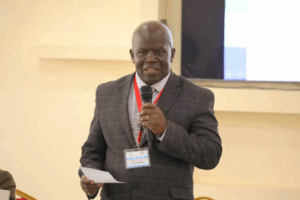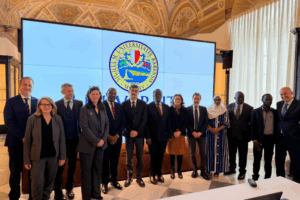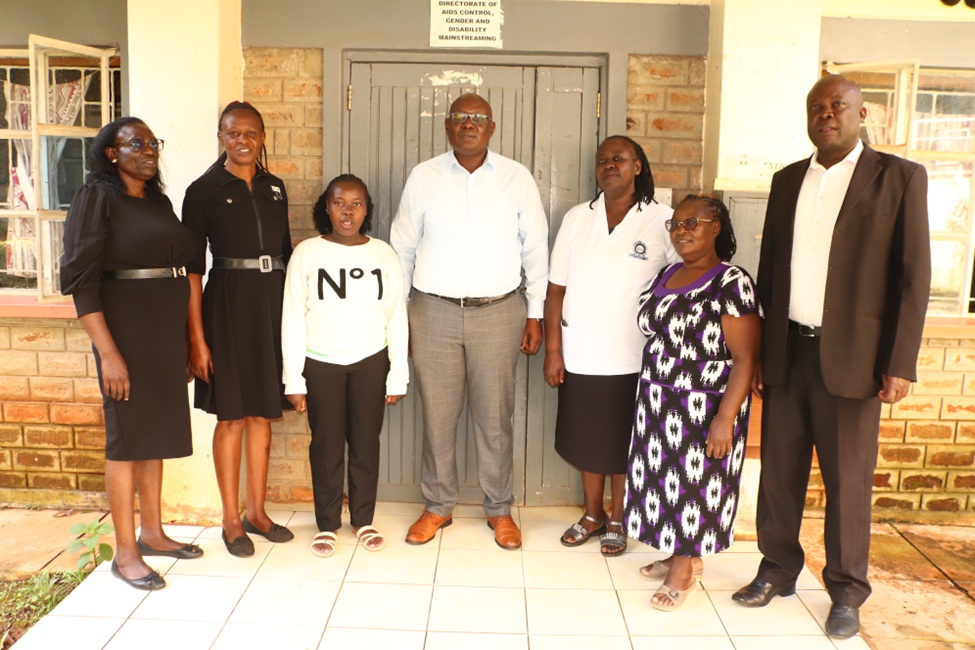
MMUST Embraces Inclusivity Through Progressive Directorate on AIDS Control, Gender, and Disability Affairs
At Masinde Muliro University of Science and Technology (MMUST), inclusivity is more than a policy; it is a practice deeply embedded in the heart of its operations. Through the Directorate of AIDS Control, Gender, and Disability Mainstreaming (ACGDM), the University actively promotes an environment where every student and staff member feels valued, supported, and empowered to thrive. The Unit was initially established in 2008 and later elevated to a fully-fledged Directorate in 2023, portraying the University’s commitment to equity and the holistic well-being of its community. At the helm, is Prof. Benedict Ondiek Alala, who is the first-serving Director of the ACGDM.
Speaking during an interview, Prof. Alala revealed that his vision for the Directorate is to see its principles integrated into every aspect of University life. The ACGDM’s core services include creating awareness and advocating for inclusion on matters related to HIV/AIDS, gender equality, and disability.
The Directorate leads continuous sensitization and awareness campaigns on HIV/AIDS and mental health across the University. These efforts have resulted in a significant increase in regular testing as well as a deeper understanding of prevention and support among students and staff, contributing to a healthier community within the university.
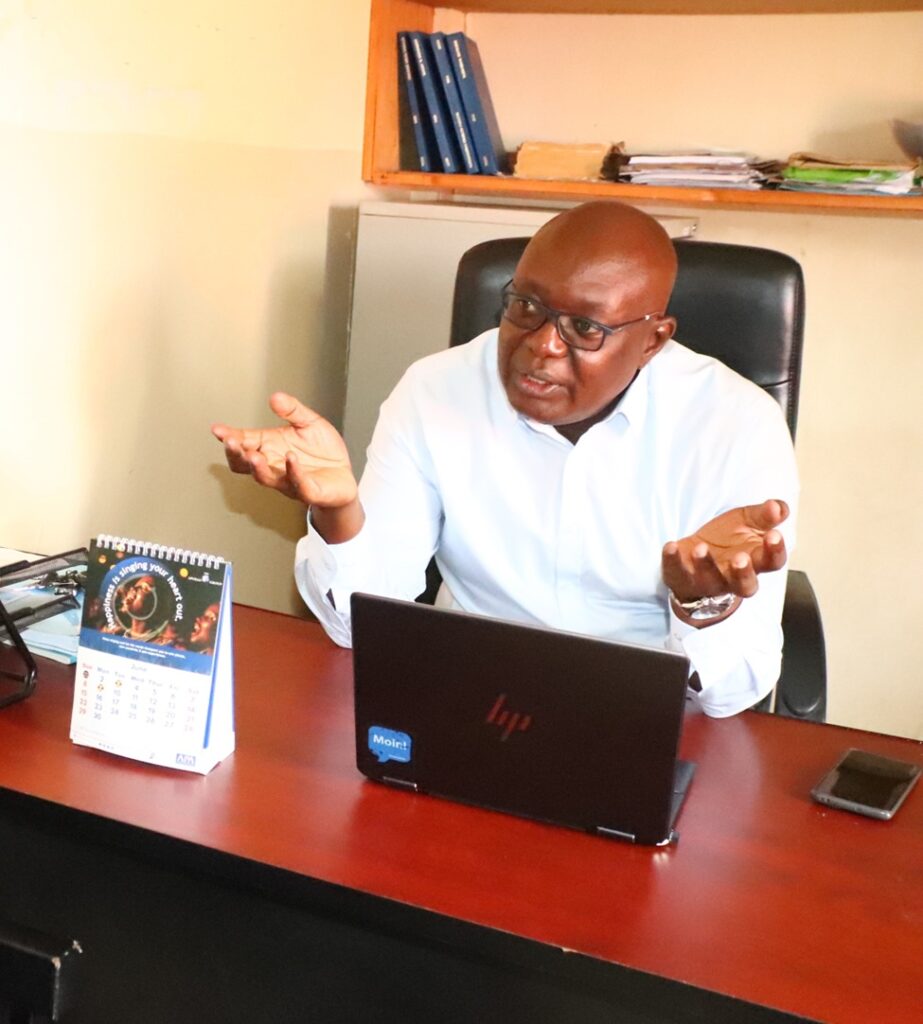
The Director ACGDM, Prof. Benedict Alala during the interview in his office.
On gender issues, the ACGDM takes a proactive approach, leveraging existing gender policies to educate and raise awareness within the MMUST fraternity. The University has regularly hosted forums and workshops aimed at training staff and students on gender equality and gender-based violence. Additionally, it has collaborated with national bodies such as the National Gender and Equality Commission to promote gender equality and freedom from all forms of discrimination.
“While much focus has traditionally been placed on women’s empowerment, it is vital that we ensure that men are not left behind in this conversation on gender,” stated Prof. Alala, during the recent Men’s Wellness Day. This event, which was hosted to mark Father’s Day, successfully brought together male staff and students to openly discuss their mental health, family matters, and emotional well-being.
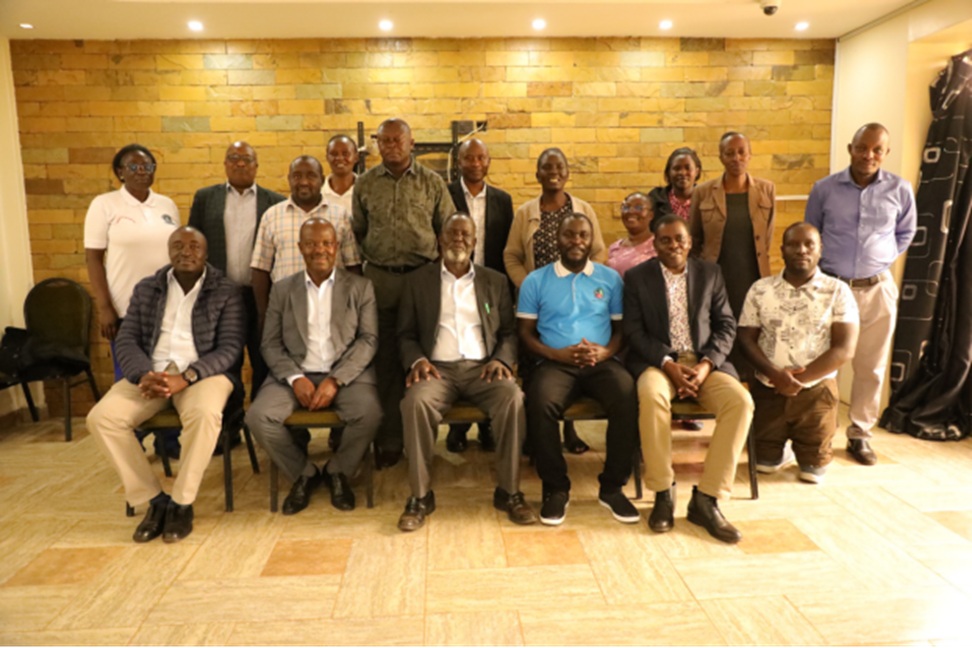
MMUST ACGDM team and a section of MMUST staff during a capacity building workshop aimed at strengthening disability inclusion initiatives within the University, at the Great Chef Hotel in Busia County.
One of the most celebrated aspects of the Directorate’s work is its dedication to disability mainstreaming. MMUST has made significant strides in supporting its staff and students with disabilities, enhancing everything from physical accessibility across campus to ensuring their robust representation in student governance, clubs and staff unions. “We have created a peer group system that tightly knits student support network, allowing those with disabilities to connect, support one another, and share experiences. These students are also represented in the student council, ensuring their voices are heard directly at the decision-making table,” explained Prof. Alala.
The Directorate has also been deliberate in promoting the inclusion of its minority groups in co-curricular activities. In the recent past, students with disabilities have proudly represented MMUST at national games at Maseno and Kenyatta Universities respectively, where they have competed admirably and brought home trophies and medals. Beyond sports, the Directorate has forged external partnerships with organizations such as Light for the World. This collaboration has seen students with disabilities receive training and support aimed at enhancing their employability skills. Light for the World has also provided crucial training to MMUST staff, including the University Management Board, on how to foster deeper inclusivity and create an even more enabling environment campus-wide.
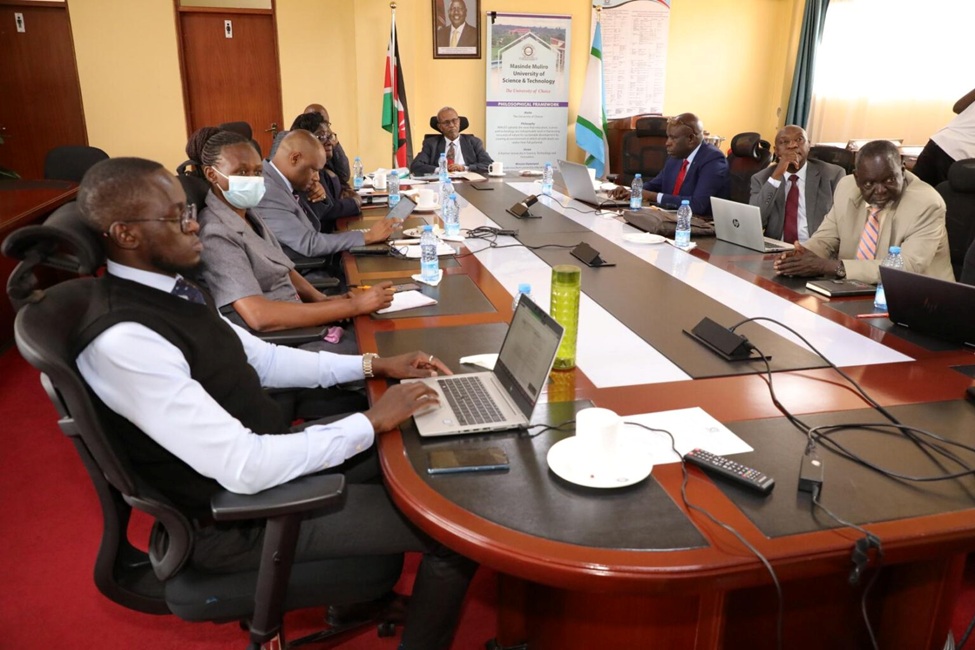
MMUST Management Board (UMB) undergoing a comprehensive training on disability mainstreaming earlier in the year.
Mr. Patrick Chibukosia, the representative of the students with disabilities in the 8th MMUSO Parliament, lauded the University’s efforts to ensure inclusivity among its population of Persons With Disabilities (PWDs). He expressed appreciation for the MMUSO body, saying that this platform has provided vital space for PWDs to voice their concerns and present proposals aimed at improving their campus life.
Looking to the future, Prof. Alala revealed that the Directorate is actively working to establish a lactation center for student mothers. The facility will provide a safe, fully equipped space where student mothers can leave their infants while attending classes. “We want every student to have the opportunity to pursue their education without unnecessary barriers. As a result, we are working to set up a fully equipped lactation Centre that will support breastfeeding across campus,” affirmed Prof. Alala.
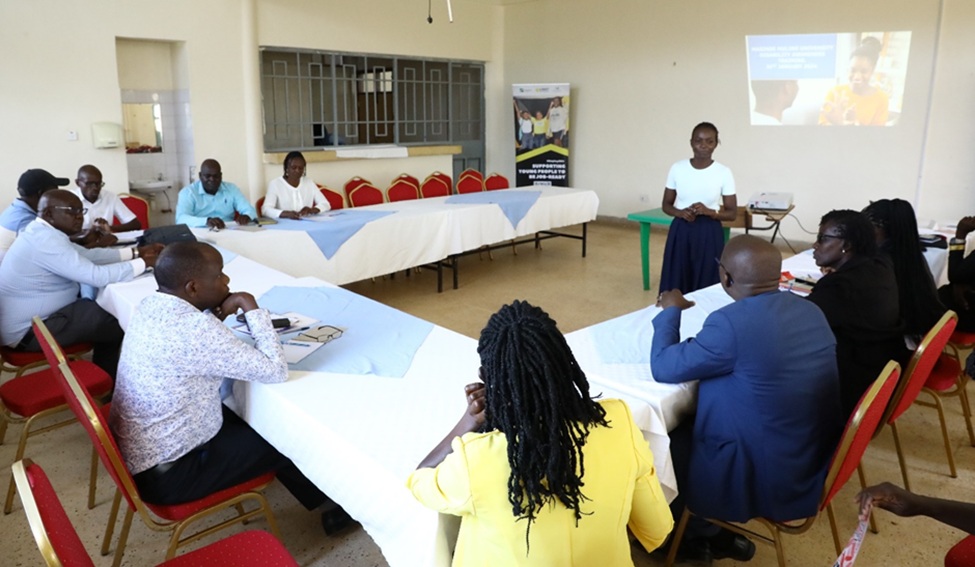
MMUST staff undergo a Disability Awareness Training by Light for the World.
Despite ongoing resource challenges, Prof. Alala is optimistic about the future. The ultimate goal, he emphasizes, is to create a University where every person, regardless of their gender, health status, or ability feels valued and is truly empowered to achieve their full potential. Certainly, by continuously deepening integration, improving service delivery, and fostering a sense of belonging, MMUST is clearly building its brand as an inclusive institution.
Story by: Ronny Obuolo and Caren Nekesa
Photos by David Paul Mwongela

